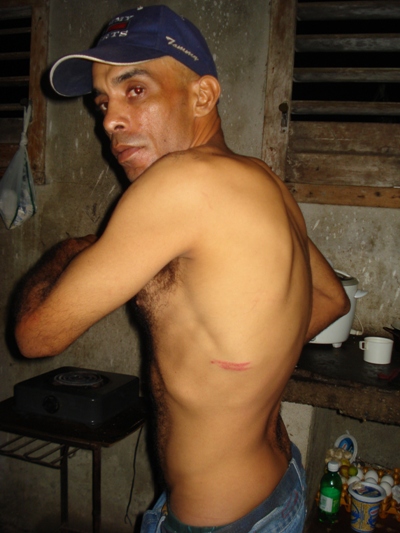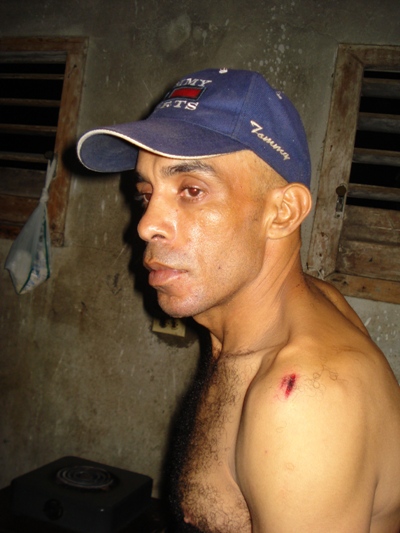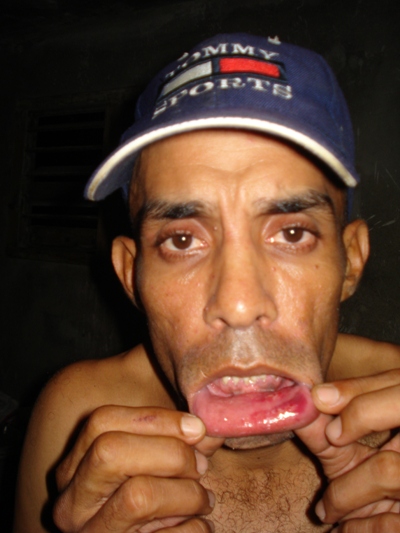This is about José Cano Fuentes, one of the most active defenders of human rights in Guantanamo. His membership in the Eastern Democratic Alliance has put him in the middle of the most talked about repression of recent weeks.
On Wednesday, July 7, when he was returning from supporting Idalmis Reinosa Núñez, who was also beaten and humiliated in Santiago de Cuba, he was intercepted at the Fourth Street Intercity Terminal by the Sector Chief of the National Revolutionary Police (PNR) who took him to the cells of the 3rd Patrol Station. Once inside there, where no one could see or hear or serve as a witness, he was beaten again; Cano Fuentes says that thanks to the intervention of a captain they didn’t beat him into a pulp on the floor.
Hours later, battered and bruised he was released.
According to Cano, on returning to Guantanamo the police there realized that the dose of Santiago de Cuba belonged to another province and he hadn’t received one from the Guaso. They caught him right in the street. They took him to the police hell that is the Park 24 Station, and general headquarters of the Technical Investigations Department (DTI). Again, there were no witnesses to what his body received once he was inside there. All that was left to tell the story was his voice and his face as a record of complaint. They kept him there until the next day and then released him without charges, but also with no apology from the military. On July 14 they arrested him again while he still had the marks of the previous beatings. This time there were no blows, just warnings not to leave town.
On July 14 there was other bad news. Francisco Luis Manzanet Ortiz was forced to return to his native Baracoa. They refused, without any explanation, to grant him the right to visit Guantanamo. Maiky Martorell Mayans, from Manatí, Las Tunas and Asdrúbal Delgado Pérez, from Chaparra in the same province were taken to jail. They also were warned by the police that they would not travel to Holguin and that if they did they would spend several days in jail.
I understand quite well the concern of the authoritarian authorities in my country. At a time when the government in Havana is putting on its make-up and washing its hands of the political prisoners of the Black Spring of 2003 through exile, the G-2 in eastern Cuba steps up its repression and turns our houses into temporary prisons.
What drives them to constantly violate citizens’ right to travel, meet and express ourselves publicly? What drives others to applaud them all the time? What makes so many people look away from the Human Rights violations committed by the Cuban leaders?
I don’t have a single answer. I have several.



